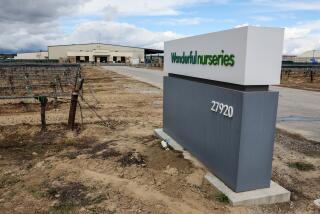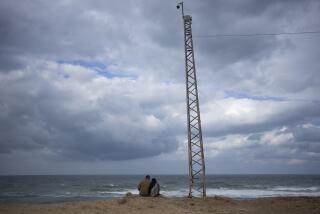UPDATE : United Way Tries to Portray United Front : A year after scandal racked the nation’s largest philanthropic group, it is still grappling with local defections and a marked drop in fund raising.
- Share via
WASHINGTON — A year after revelations of lavish spending and questionable business dealings toppled the leader of the nation’s largest philanthropic organization, United Way of America is still grappling with the fallout.
Many local United Way affiliates that withdrew their membership from the national organization have steadfastly refused to return. Fund raising has dropped nationwide and investigations continue in an effort to determine whether former United Way President William Aramony broke any laws and whether the United Way board of directors failed to fulfill its duties as the organization’s overseer.
On April 1 the board halted talks over Aramony’s claim to $4.4 million in retirement benefits until the investigations are complete.
BACKGROUND: Aramony was forced to resign after internal investigations and press reports made public his spending on chauffeured limousines, transatlantic Concord flights, a $463,000 pay package and allegations that he and his aides had created several for-profit spinoff organizations that enabled them, for example, to purchase real estate in Alexandria, Miami and New York, including a $459,000 condominium in New York used mostly by Aramony.
THE FINANCES: During their 1992 fund-raising campaigns, local United Way organizations responded to public outrage by emphasizing their independence from national headquarters, and promising that contributions would be spent locally.
Consequently, only 890 of the 1,400 United Way affiliates that paid membership dues two years ago have paid this year. By the March 31 deadline, United Way of America had received only $2 million out of $12 million in pledges, desperately short of a projected $19 million needed for this year’s budget. The shortfall has prompted the UWA board chairman, W. R. Howell, to threaten that the board would resign if local United Ways failed to pay up by April 15.
Last year’s membership defection forced UWA to trim its budget from $30 million to $21 million, reduce its staff from more than 300 to 186 and halt some training and promotion services for local United Way groups.
The new UWA president, former Peace Corps Director Elaine Chao, has announced some realignments that could lead to more cutbacks.
Overall, funds raised by local organizations decreased in 1992 by about 3.3% from 1991. However, much of the reduction has been attributed to the recession--and to the profusion of alternative fund-raising organizations that are appearing on company employee pledging lists. That trend began well before the Aramony crisis.
Herbert L. Carter, president of United Way Inc. of the Los Angeles Area, said fund raising remains slightly below levels of recent years, but that given the recession, “we’re doing remarkably well. I’ve done about 70 campaign rallies since Sept. 1, and there hasn’t been one single question about Aramony.”
THE REFORMS: Several UWA reforms may have prevented a leaner year and helped reconcile many local United Way affiliates with national headquarters.
The board has been expanded to 45 seats from 37, with 15 allotted for members from local United Way organizations. Six oversight committees have been created, including one on ethics, where only a single audit committee existed before. New bylaws require the board to meet four times a year instead of two.
First-class travel has been banned, and the for-profit spinoff companies created by Aramony and his aides to provide services for the United Way have been brought directly under UWA control. One exception is Partnership Umbrella, an Aramony-created company that remains under his control but no longer deals with United Way.
Finally, as UWA’s new leader, Chao has traveled to 30 cities over the last two months for regional meetings seeking to re-establish confidence.
Still, the drop in fund raising is enough to make Chao talk of a need for fundamental change in fund-raising strategy. She believes United Way should not confine itself to funding such traditional recipients as the Red Cross and the scouts, but must be ready to diversify, perhaps funding environmental agencies or art groups.
In an interview, however, Chao acknowledged that the time she has had to devote to such issues has been diverted to the legal, financial and emotional aftermath of UWA’s problems.
“I was selected because I will bring change,” Chao said, “and when I first came in I was very outwardly focused . . . . I had thought that we would be able to address these (long-term strategic) issues much more quickly than we are.”
THE LEGALITIES: Still haunting the United Way is a string of criminal investigations. The Federal Bureau of Investigation, the Internal Revenue Service and the U.S. attorney for the Eastern District of Virginia are questioning whether Aramony or his aides engaged in any criminal activity.
A spokesman for the New York state attorney general said his office is investigating whether any tax codes or other laws were violated by the spinoffs. In addition, it is investigating whether the national board properly carried out its oversight responsibilities.
UWA board chairman Howell, also chairman of the board of J. C. Penney Co., conceded that after many years of working with Aramony, many board members placed a lot of confidence in him. But Howell insisted that the board “was active and aware of the activities (that) the United Way of America was involved in.”
More to Read
Sign up for Essential California
The most important California stories and recommendations in your inbox every morning.
You may occasionally receive promotional content from the Los Angeles Times.













